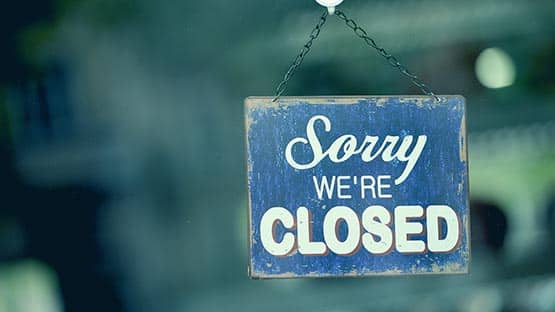
A report focused on small businesses shows the negative impact to entrepreneurs if the U.S. defaults on its debt.
The “Impacts of Budget Cuts and Brinkmanship on Small Businesses” shows that services, resources and incentives for current and future entrepreneurs would be severely curtailed.
“This report shows that spending cuts would hurt our small businesses at a time when they need our support the most. Now is not the time to abandon them,” said U.S. Sen. Ben Cardin, chair of the U.S. Senate Committee on Small Business & Entrepreneurship. “With the Republicans’ proposed budget cuts, small business owners would struggle to keep their doors open.
“Already burdened with rebuilding from COVID-19, this would put them over the edge,” said Cardin. “We must come together for our great nation and local, vibrant corridors to find a solution that does not cripple the backbone of our economy – our small businesses.”
The report found:
- Cuts to the Small Business Administration would have a significant impact on small business owners, and especially veteran small business owners. The agency plays a crucial role in assisting veterans navigate the process of accessing capital, especially in the current economic climate.
- If Entrepreneurial Development program funding levels were capped at FY2022 levels, this would be a cut of $29.9 million from FY2023 funding levels, and SBA would reach 125,000 fewer small businesses and entrepreneurs. If program funding levels were reduced by 22 percent from FY2023 levels, this would be a reduction of $70.4 million and 295,000 fewer small businesses would be served.”
- Minority and underserved small businesses would feel these effects the most. Minority and underserved communities tend to rely on entrepreneurship and small business ownership as a career path at a higher rate than others; it is a path of self-determination for those who may not have that option elsewhere. Underserved communities have very little safety net and often operate on very thin profit margins. Sustaining, much less recovering from, such significant losses caused by a default would be an uphill battle that spans years.
- Republicans have joined Democrats to cleanly raise the debt limit several times in history. Since 1960, Congress has raised the debt limit 78 times — 49 times under Republican presidents and 29 times under Democratic presidents. The limit has been raised 20 times since 2001 alone and was raised by suspension three times under the Trump Administration.
- In recent history, the 2017 Tax Cuts and Jobs Act is a driving force in increasing our debt because of the tax cuts given to the wealthy and large corporations at the expense of everyday Americans and small businesses.
- The 2001 Bush tax cuts and the bipartisan extensions it along with the 2017 Trump tax cuts have cost $10 trillion since their creation and are responsible for 57 percent of the increase in the debt to spending ratio since then.










